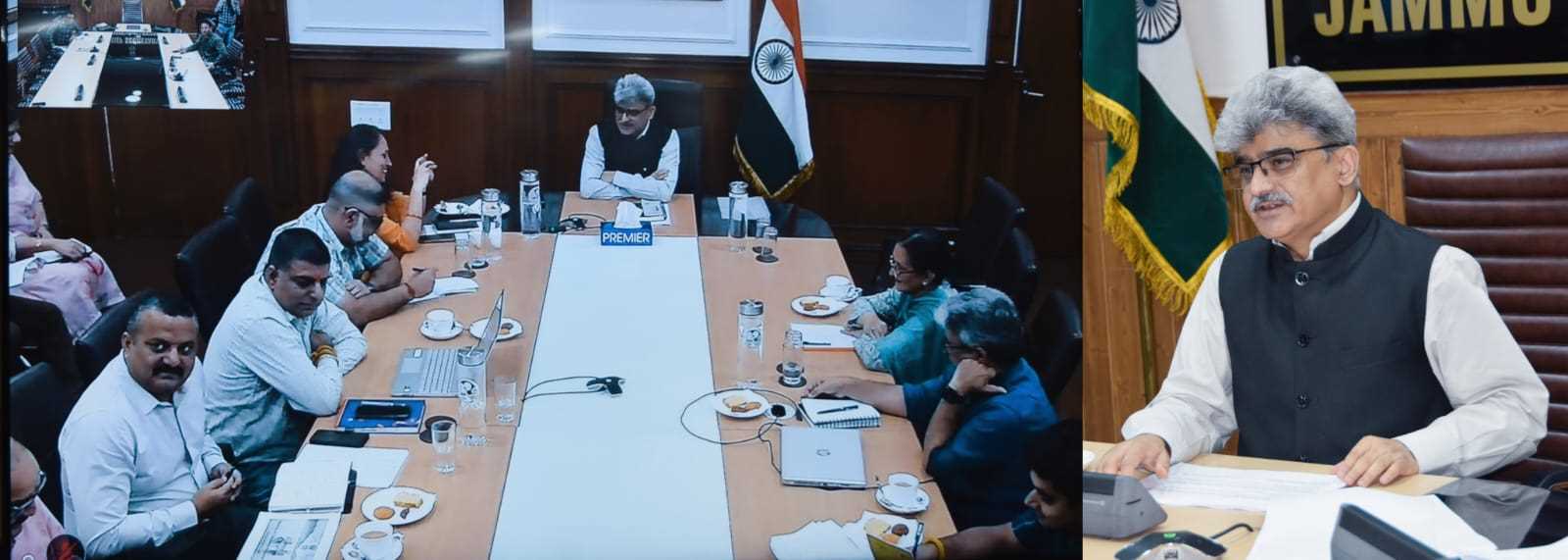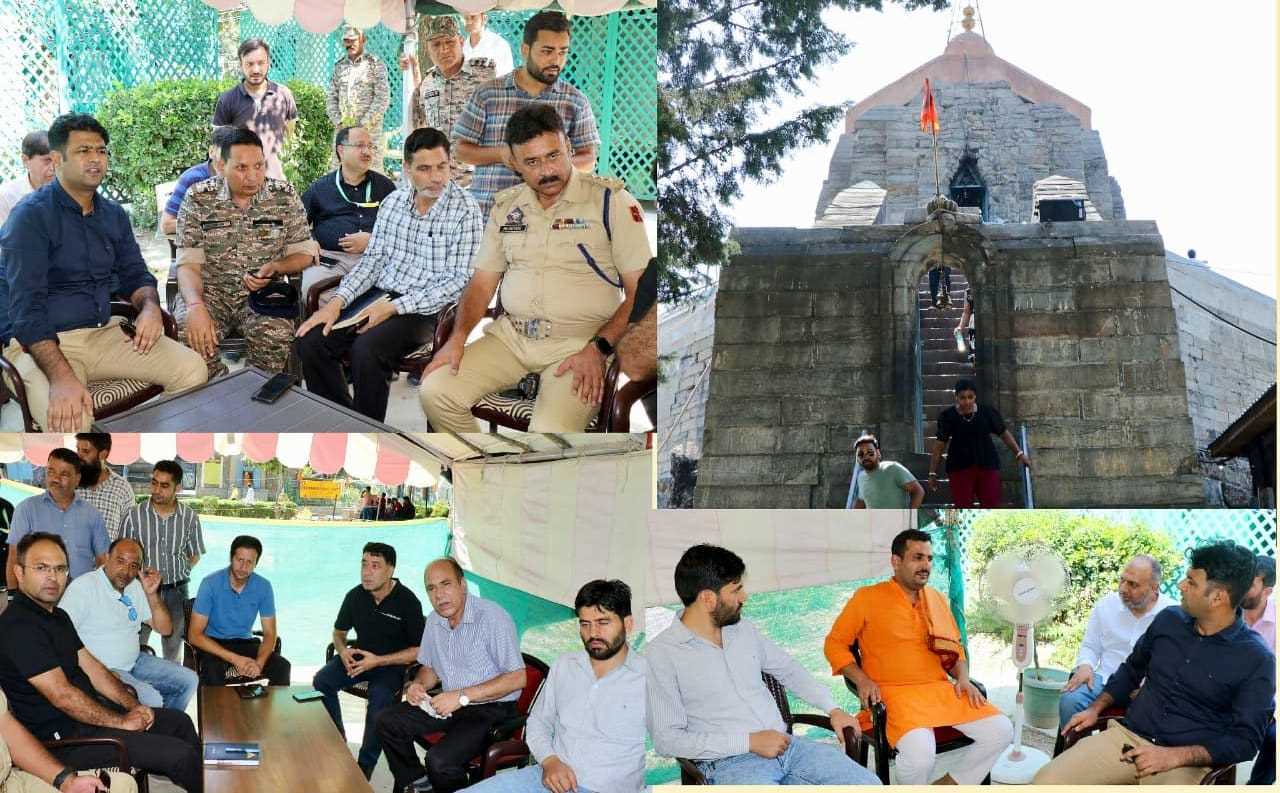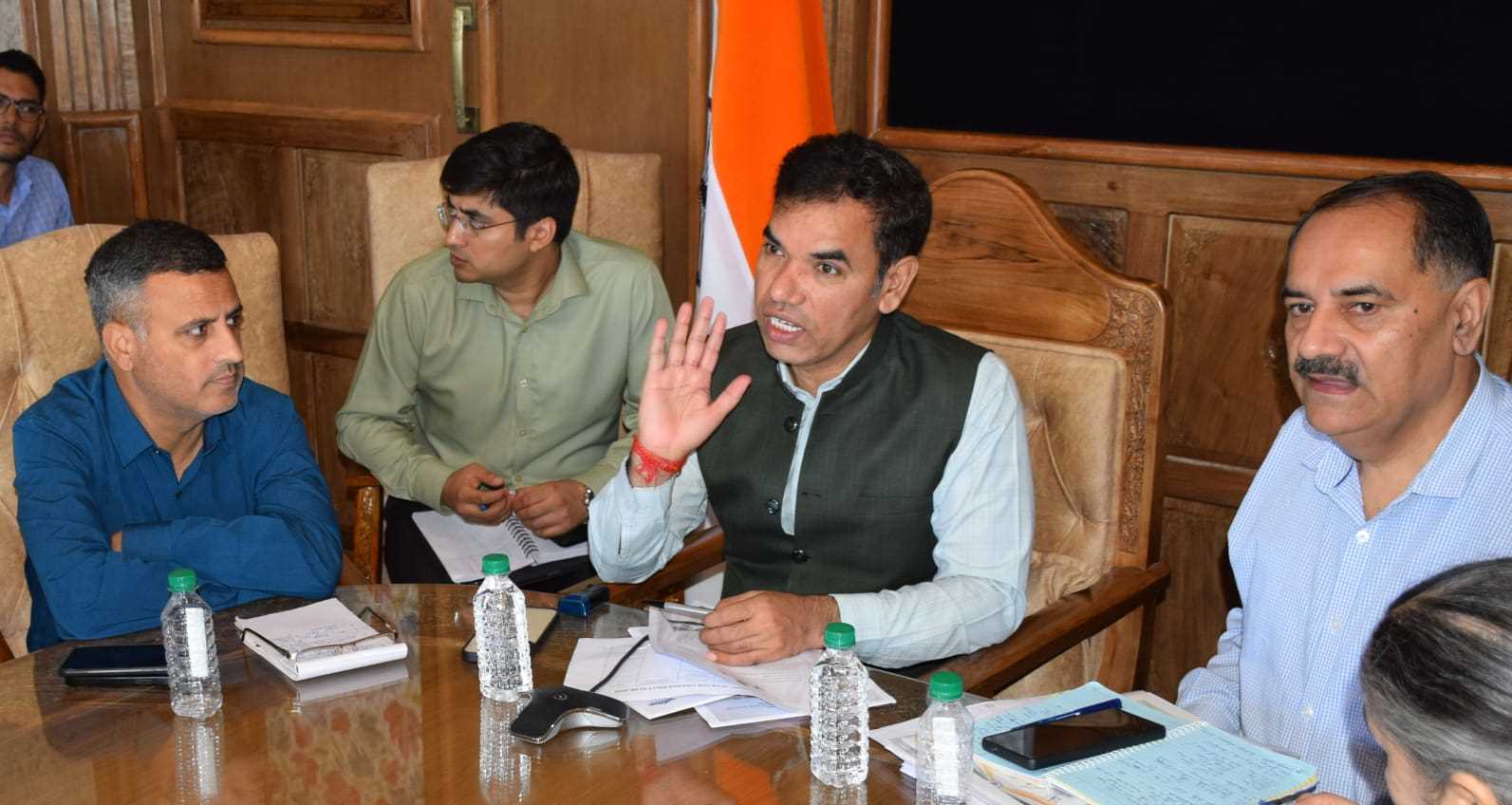Chief Secretary, Atal Dulloo, today chaired a meeting to review implementation of compliance reduction and deregulation reforms recommended by the National Task Force, headed by the Cabinet Secretary, Government of India, to ensure Ease of Doing Business (EoDB) across the country.
The meeting was attended by senior officers including Commissioner Secretary, Housing & Urban Development Department; Commissioner Secretary, Forest; Commissioner Secretary, Industries & Commerce; Commissioner Secretary, Rural Development Department; Secretary, Law and Director, Industries & Commerce, Jammu, among others.
During the meeting, the Chief Secretary took stock of the progress on key reform areas. He directed all the departments to ensure time-bound and full compliance with the agenda set by the Task Force.
Emphasizing the urgency and importance of the exercise, he asserted that there is no scope for laxity or delays and administrative heads must regularly monitor the status of implementation to ensure that reforms are grounded effectively. He further stressed the need to upload the evidentiary proof of compliance across all priority areas without further delay, underscoring that these reforms are critical to improve the overall ease of doing business.
The Chief Secretary called for mission-mode implementation of regulatory changes. He directed the Industries & Commerce department to complete all documentation and reporting requirements promptly by assisting the departments in implementing them smoothly.
Commissioner Secretary, Industries & Commerce, Vikramjit Singh, informed the meeting that 434 reform points spanning various departments have already been successfully implemented. However, few specific reform points were returned by the Task Force with observations for further refinement. He assured that as the nodal department, Industries & Commerce is proactively addressing these gaps and will ensure timely compliance uploads for the pending areas in coordination with the respective Departments.
Providing further insights, Director Industries & Commerce, Jammu, Arun Kumar Manhas, outlined several key reform areas identified for immediate action. These included adoption of flexible zoning regulations in master plans to facilitate mixed land use in development projects, simplification and digitization of the Change of Land Use (CLU) process and rationalization of minimum road with norms for industrial units in rural areas
The reform points that came under discussion also spanned around amendment of building regulations to minimize the land loss in industrial and commercial plots, removal of restrictions on women working in hazardous sectors, review of working hour limits under factory laws, lifting restrictions on business hours for commercial establishments and provision for fire NOCs through third-party empanelled agencies along with few others.
These reforms, he noted, are geared towards building a robust and business-friendly industrial ecosystem in the Union Territory.
It is pertinent to mention that the Business Reforms Action Plan (BRAP), launched by the Department for Promotion of Industry and Internal Trade (DPIIT), is a flagship initiative of the Government of India which aims to simplify regulatory frameworks and enhance the ease of doing business across the country.







